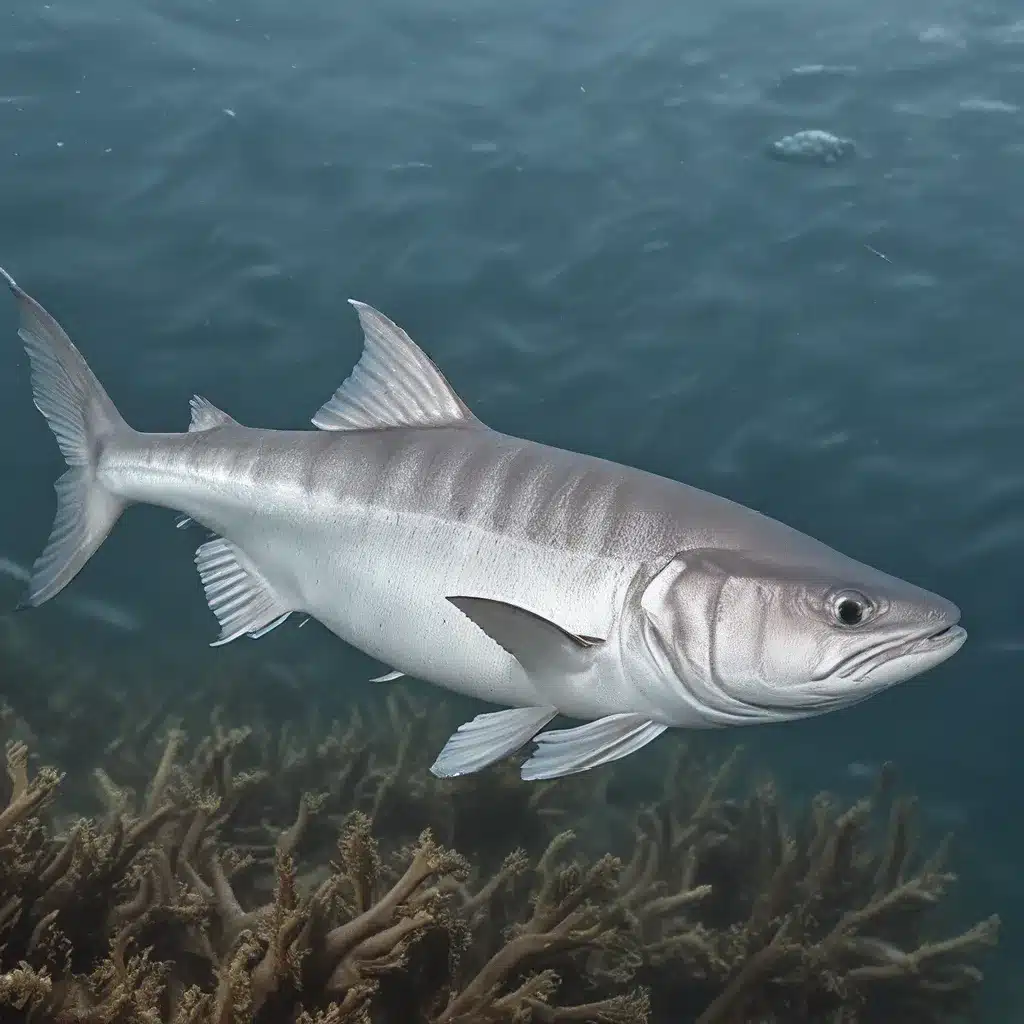
Understanding the Impacts of Climate Change on Mediterranean Fisheries
The Mediterranean Sea is a complex and vulnerable ecosystem that faces a multitude of climate-related challenges. From ocean warming and changes in vertical stratification to increasing extreme weather events, these environmental shifts have far-reaching consequences for the region’s fisheries. Nowhere is this more evident than in the case of small pelagic fish, a crucial component of the marine food web and a vital economic resource for coastal communities.
Recent research has highlighted the significant risks that climate change poses to small pelagic fisheries in the Mediterranean. Ocean warming, for instance, can favor the proliferation of smaller, thermophilic (heat-loving) species, leading to shifts in species composition and potential declines in the abundance of commercially important species like sardine and anchovy. Changes in vertical mixing and primary production patterns can also disrupt the optimal habitats for these small pelagic fish, further compounding the challenges they face.
Moreover, the Mediterranean is a semi-enclosed sea, which means that species have fewer options to migrate and adapt to changing conditions. This, combined with the cumulative impacts of pollution, habitat degradation, and overfishing, creates a perfect storm of threats that small pelagic fisheries must contend with. The risks are particularly acute in the southern and eastern Mediterranean sub-regions, where adaptive capacities may be lower and the reliance on these fisheries for food security and livelihoods is more pronounced.
Implementing Adaptive Strategies for Small Pelagic Fisheries
To address the multifaceted challenges posed by climate change, a comprehensive and proactive approach to fisheries management is essential. Enhancing adaptive fisheries management should be the primary strategy for the Mediterranean region, as it allows for greater flexibility and responsiveness to changing environmental conditions.
Transboundary stock management is a key component of this approach, as many small pelagic fish species traverse national boundaries and require collaborative efforts for effective conservation and sustainable exploitation. Adaptive spatial planning, which accounts for shifting species distributions, can also help ensure that fishing activities are aligned with the dynamic nature of the resource.
Diversifying fishing activities is another crucial strategy, as it can help small-scale operators and communities build resilience to climate-driven changes. This may involve exploring alternative target species, developing new fishing gears, or even pivoting to aquaculture or other livelihood opportunities. Importantly, these diversification efforts should be tailored to the specific socio-economic and cultural contexts of each Mediterranean sub-region.
Additionally, policy and investment measures can play a vital role in supporting the adaptation of small pelagic fisheries. This may include initiatives to enhance the value of fishery products, address poverty and food insecurity in coastal communities, and increase public awareness and capacity-building around climate change impacts and adaptation strategies.
Research and monitoring are also essential for informing these adaptive strategies. Improving our understanding of the relationships between environmental conditions, species productivity, and distribution will help managers make more informed decisions and develop targeted interventions. Investments in early-warning systems and climate-informed stock assessments can further strengthen the resilience of small pelagic fisheries.
Overcoming Barriers to Adaptation
Implementing these adaptive strategies is not without its challenges. Barriers such as limited resources, institutional inertia, and cultural resistance to change can all hinder the effectiveness of adaptation efforts. Addressing these obstacles will require a coordinated and multifaceted approach, involving stakeholders at all levels – from local fishing communities to regional management bodies and international policymakers.
Fostering collaboration and knowledge-sharing between countries and across sub-regions can help overcome some of these barriers, as can integrating traditional ecological knowledge and local perspectives into the adaptation planning process. Ultimately, the success of these efforts will depend on the ability to build societal acceptance and political will for the transformative changes needed to safeguard small pelagic fisheries in the face of climate change.
By embracing a proactive, adaptive, and inclusive approach to fisheries management, the Mediterranean can chart a course towards a more sustainable and resilient future for its small pelagic fish populations. This, in turn, will help ensure the food security, livelihoods, and cultural heritage of the region’s coastal communities, strengthening their capacity to thrive in the face of an uncertain climate.
Conclusion: The Path Forward for Small Pelagic Fisheries
The challenges facing small pelagic fisheries in the Mediterranean are daunting, but not insurmountable. By leveraging the latest scientific insights, implementing flexible management strategies, and fostering collaboration across sectors and borders, the region can build the resilience needed to overcome the impacts of climate change.
Ultimately, the fate of these vital fisheries is inextricably linked to the overall health and sustainability of the Mediterranean ecosystem. By prioritizing adaptive management, diversifying livelihoods, and investing in research and monitoring, the path forward becomes clearer – one that secures the future of small pelagic fish and the communities that depend on them.
King Aquarium is committed to supporting the responsible and sustainable management of aquatic ecosystems, both in the Mediterranean and around the world. Through our educational resources, advocacy efforts, and partnerships with leading marine conservation organizations, we strive to empower aquarists and hobbyists to play a vital role in protecting the delicate balance of our oceans and waterways.

